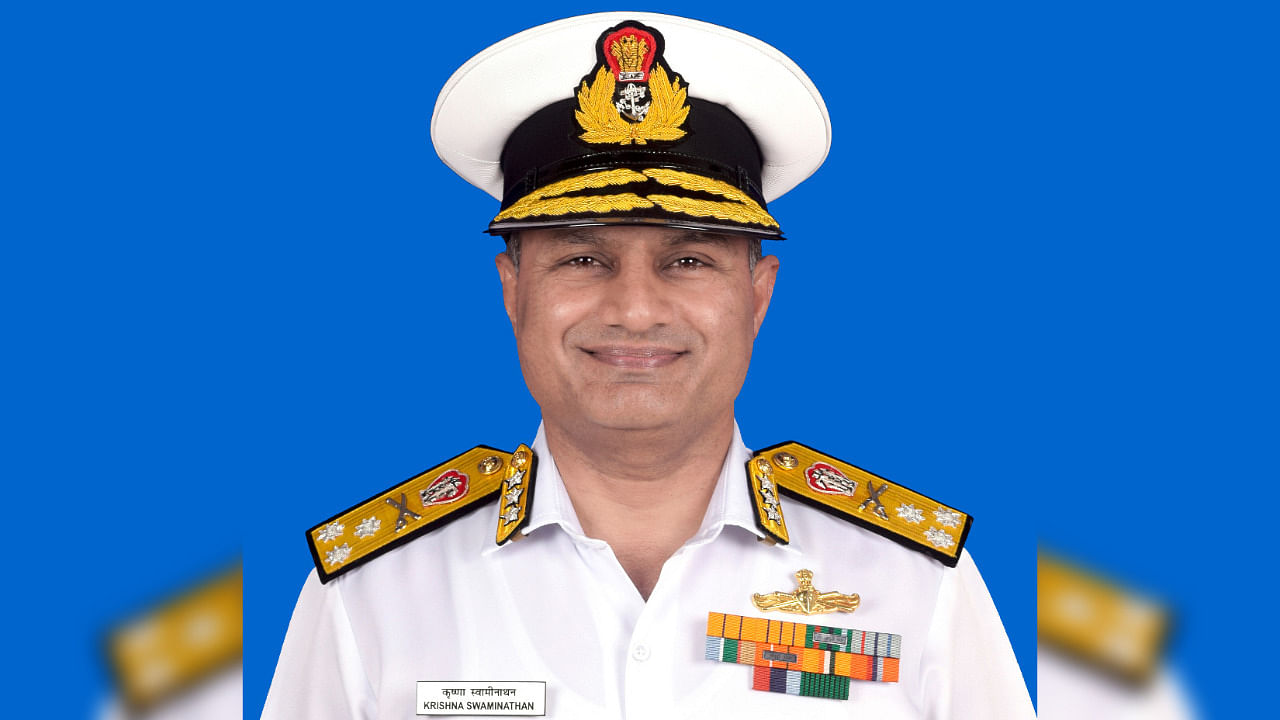
The modern Indian Navy faces not only a dwindling capital budget but a resurgent China in the Indian Ocean. The newly appointed Chief of Staff of Western Naval Command, Vice Admiral Krishna Swaminathan, speaking at the 17th annual lecture organized by the General K S Thimayya Memorial Trust, described the challenges that the fleet faces in the 21st century.
How important is the Indian Ocean?
Between 100,000-150,000 commercial vessels that ply these waters every year. Some 65% of global oil trade, 35% of bulk cargo, and about 50% of the world’s container traffic passes through this area every year. About 90% by volume and about 75% by value of India’s external trade goes by sea. We are hugely dependent on the sea for our energy security, too. The ocean is important for economic stability, not only for people within this region, but for people outside as well.
We’ve been the predominant regional sea-power in the Indian Ocean for many years, but the dynamics are now changing. What are the current threats the Indian Navy faces?
Broadly speaking, the region is beset with a sense of insecurity, uncertainty and unpredictability. Several nations have significant security problems that they are unable to address themselves. As a region, therefore, we have lent ourselves to extra-regional presence and intervention. Pakistan, of course, has been a concern and threat since Independence. Now, we also have a major challenge in the form of an assertive China. In addition, the unholy nexus between drugs trade, arms smuggling, illegal immigration, piracy and terrorism -- all of that impacts us. The bottomline is that we have a combination of conventional and unconventional threats arrayed against us, and these are present, standing and immediate.
Most major military powers, including China, have downsized manpower in favour of technology. However, 56% of India’s defence spending is on the Indian Army and about 15% or less than that is spent on the Indian Navy.
There cannot be a ‘one-size-fits-all’ approach to raising and sustaining the armed forces. Every nation faces its own challenges. For us, our threats are immediate in nature and need to be addressed with urgency. The three services seek the budgetary support they need individually, but all three need to be funded appropriately since no one service can do everything the nation wants. All three have to work in concert. The Army has a huge role to play in tackling serious threats on a daily basis. Our border areas see live military operations daily. We don’t want to take away anything from them. However, in the fullness of time, we hope the Navy’s growing importance will ensure that it gets a higher percentage allocation of the defence budget.
About 82% of the Army’s defence spending is on revenue expenditure, which is paying salaries and pensions, and only 18% on capital expenditure. In the Navy, revenue expenditure is more than 50%. With this kind of spending, where are we headed?
We don’t need to downsize for the sake of downsizing. We have our security requirements and the wherewithal to address them. We are fighting in areas and terrain that nobody else fights in. One of the big challenges, yes, is that we have significant pension payouts and we are engaged in finding ways in which we as a nation can afford it. Pressing operational commitments also mean we cannot downsize today or tomorrow. It has to be done systematically so that we do not become ineffective militarily in our current jobs.
With China now having a naval base in Djibouti, they join the US, Japan, Italy, and other countries with bases in that part of the Indian Ocean. India has not done so. Is that something that is not relevant for us?
Firstly, it is important to recognise that the Navy doesn’t operate in isolation. It functions according to and aligns itself entirely with national policy. It gets government approval for everything it does. The deployment of the Indian armed forces is guided largely by national perspective in purpose and geography. Secondly, we are governed by our nation’s ethos of non-interference and do not deploy anywhere unless requested to and permitted by the government of the day. We deploy in different parts or regions because we just want our neighbourhood to be safe. This we can do currently even without acquiring new bases.
But is there concern that China now has bases in Djibouti and elsewhere in the Indian Ocean?
We understand that China has invested significantly in gaining new bases. But that alone is not reason for us to follow suit. However, we watch all developments closely and on a daily basis.
If, hypothetically, unlimited resources were offered to the Navy in the next 10 years, where would it be spent, if it were up to you?
For one, we have been trying to have a three-carrier navy since the early days of the Republic. We feel that having a carrier group each on the two seaboards, East and West, will give the nation huge flexibility in projecting power, protecting national interests and ensuring security and stability. We also need to invest continuously in enhancing and modernising the capabilities of our high-technology systems. But if we have unlimited resources, I would want to do something to make lives better for naval personnel -- they work day in and day out for national security.
Corrigendum: On November 23, DH ran the interview with Vice Admiral Krishna Swaminathan as part of its Tuesday Interview series. This was based on a conversation with the vice-admiral and the transcript of a discussion he had on stage with Mr Timothy Franklyn under the aegis of the annual General K S Thimayya Memorial Trust (KST) lecture. Due to an editorial mix-up at our end, which we are looking into, attribution to the transcript was omitted when the interview was printed in the paper. The mistake is regretted.
The text has been modified to accomodate the above change.